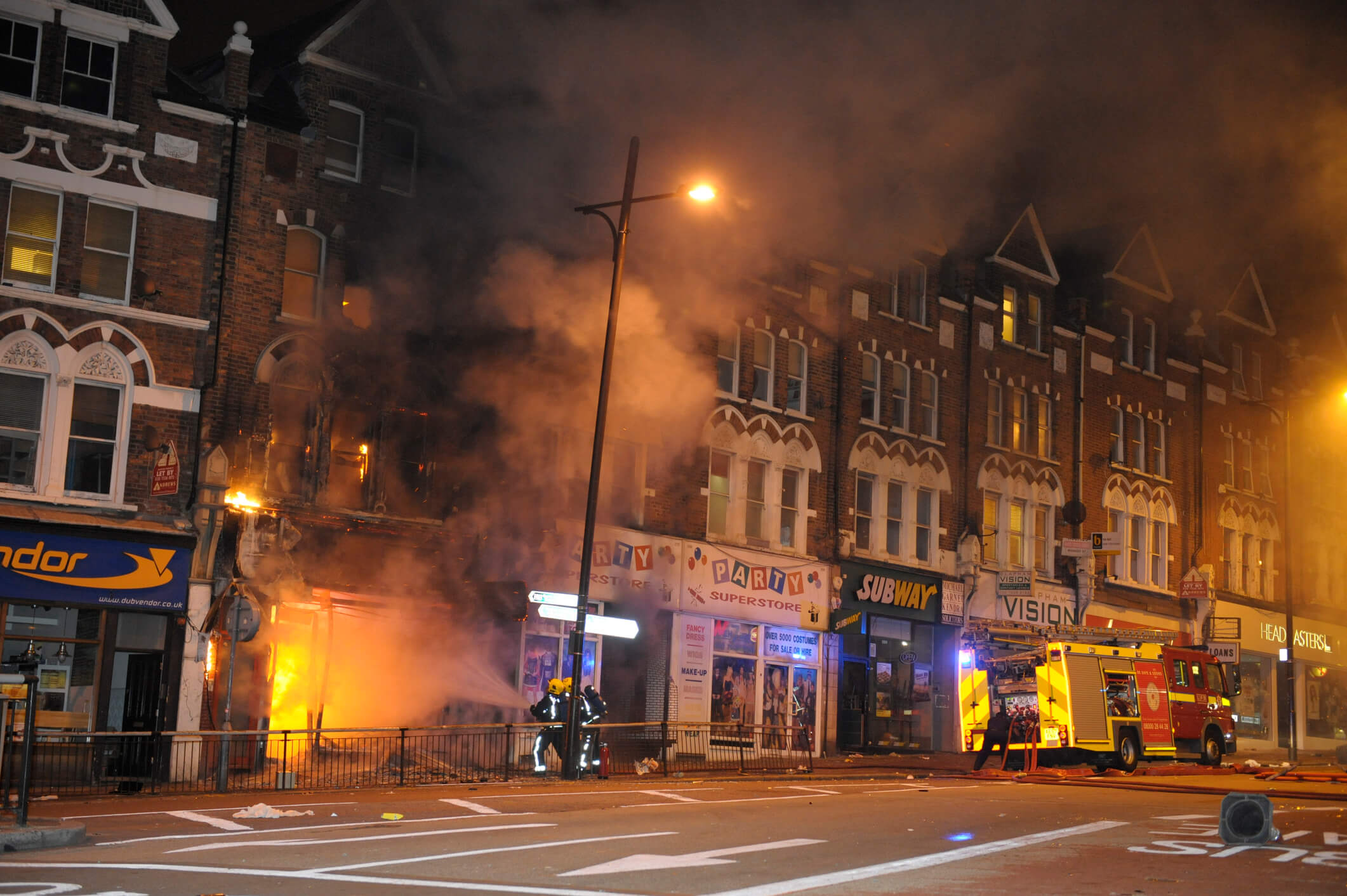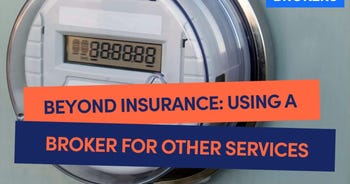Is damage caused by riots covered by business insurance?
When sorting your business insurance, you need to work out the major risks and cover against them. Some policies should be included as standard, like liability cover for employees and customers. Burglary and vandalism might also be covered as part of any business buildings and stock insurance, but what if rioting and civil unrest cause damage and stock loss?
Before we look at whether riots are covered by business insurance and how to make sure your business is protected, let’s work out what insurers define as a riot.

What defines a riot?
A riot is typically defined as a violent disturbance by a crowd. This can involve acts of vandalism, looting, arson, and other forms of property damage.
Insurance definitions may vary but, unless stated otherwise, insurers will use the technical legal definition outlined in The Public Order Act 1986. This states that at least 12 people need to be involved for the offence to be a classified riot.
Does your business insurance cover rioting?
If you have commercial property insurance as part of your policy, this should cover physical damage to your business premises. The fixtures and fittings should be covered by contents insurance, and you may have stock insurance covering the items you sell.
If any of these types of cover are missing from your policy, it’s unlikely you’ll be able to claim.
But it’s not just physical damage you need to consider. If your premises are severely damaged by fire, for example, your business could be out of action for some time.
If you have business interruption insurance and there is damage at your premises, this should cover loss of trade or profit if riots are included in your policy wording.
If you have been affected by rioting or civil unrest, you should contact your insurer and they’ll be able to tell you what you can claim for and what to do next.
How to claim for riot damage from your insurer
If you need to make a business insurance claim, follow the steps below to make the claims process as smooth as possible
- Take detailed photographs and videos of the damage. Keep records of any communication with authorities or witnesses.
- Report the damage to your insurance company as soon as possible. Delayed reporting can complicate the claims process.
- Work with insurance adjusters to assess the damage and determine the payout. Provide all necessary documentation and evidence.
- Maintain records of all repair costs, lost income, and additional expenses incurred due to the riot.
What if your insurance doesn’t cover riots or your claim is rejected?
If your insurance doesn’t cover riot damage or your insurer rejects your claim, the Riot Compensation Act 2016 (“RCA”) might offer an alternative way to claim compensation.
What is the Riot Compensation Act 2016
The Riot Compensation Act 2016 was designed to help communities recover quickly from damage caused by rioting. It replaced the Riot (Damages) Act 1986 and gives victims of criminal damage or loss during a riot the right to compensation.
But if your property wasn’t fully insured or your claim was rejected, you might be able to claim compensation under the RCA. You’ll need to show that the damage or loss was due to a riot and be aware that not all cases will be covered by the RCA.
What is covered by the Riot Compensation Act 2016
- Owners can claim for structural damage to their buildings
- Tenants or occupiers can claim for damaged or stolen contents
- Businesses can claim for damaged or stolen items stored in a vehicle
- Claims can be made for damaged or stolen stock-in-trade vehicles
- Claims for underinsured vehicles that are damaged or stolen are also covered
What is not covered by the Riot Compensation Act 2016
- Personal items stored outside a building cannot be claimed for.
- Claims can’t be made for consequential losses, such as loss of trade or rent.
- For personal injuries, claims are handled by the Criminal Injuries Compensation Authority (CICA).
You can find out more at the government website.
How to claim under the Riot Compensation Act 2016
If you have insurance, you’ll need to claim on that before you can make an RCA claim. So, if your car has been damaged, you’ll need to speak to your car insurer first. Likewise, if your business premises have been damaged, get in touch with your business buildings insurer.
If your claim is rejected by your insurer, you then have 42 days from the date of that rejection to make an RCA claim. You can also use RCA if your insurance claim is partially rejected.
If you weren’t insured, you have 42 days from the date of the riot ending to claim under the RCA.
Although you can claim without a crime number, it’s worth reporting any damage or loss to the police as getting a crime number will help to prove you were the victim or rioters.
The RCA claim form is on page 20 of this government guidance sheet.
How to help protect your business against riot damage
It’s impossible to say when or where civil unrest will break out. Taking the following steps can help lessen the risk of damage or loss:
- Invest in security systems, including alarms, surveillance cameras, and secure locks. These can deter potential vandals and looters.
- Develop an emergency response plan that includes procedures for safeguarding employees and property during civil unrest.
- Train your staff on how to respond to riots and other emergencies. Ensure they know the evacuation routes and emergency contacts.
- Foster good relationships with the local community. A positive community presence can reduce the likelihood of your business being targeted during riots.
How to make sure your insurance is up to date
Insurance policies generally renew every year, which offers a good opportunity to review cover and make sure it meets your needs for the following year.
But if there are any changes to the way you run your business, the products or services you offer, your property value, or its location, you need to tell your insurer straight away – waiting for your renewal could leave you uninsured.
If you’re unsure about your insurance and how much cover you need, the team at Bionic can help. We can help you find the right business insurance, with no unnecessary extras, and discuss coverage limits and exclusions to make sure your cover meets the needs of your business.








